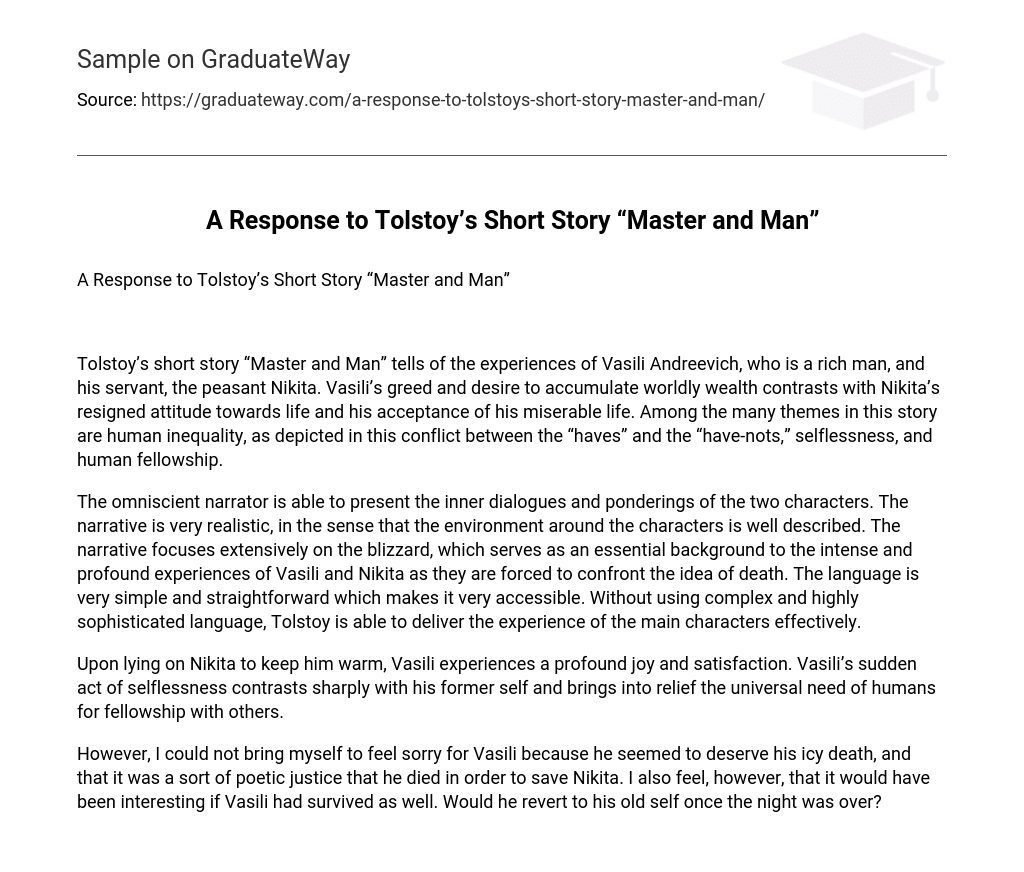A Response to Tolstoy’s Short Story “Master and Man”
Tolstoy’s short story “Master and Man” tells of the experiences of Vasili Andreevich, who is a rich man, and his servant, the peasant Nikita. Vasili’s greed and desire to accumulate worldly wealth contrasts with Nikita’s resigned attitude towards life and his acceptance of his miserable life. Among the many themes in this story are human inequality, as depicted in this conflict between the “haves” and the “have-nots,” selflessness, and human fellowship.
The omniscient narrator is able to present the inner dialogues and ponderings of the two characters. The narrative is very realistic, in the sense that the environment around the characters is well described. The narrative focuses extensively on the blizzard, which serves as an essential background to the intense and profound experiences of Vasili and Nikita as they are forced to confront the idea of death. The language is very simple and straightforward which makes it very accessible. Without using complex and highly sophisticated language, Tolstoy is able to deliver the experience of the main characters effectively.
Upon lying on Nikita to keep him warm, Vasili experiences a profound joy and satisfaction. Vasili’s sudden act of selflessness contrasts sharply with his former self and brings into relief the universal need of humans for fellowship with others.
However, I could not bring myself to feel sorry for Vasili because he seemed to deserve his icy death, and that it was a sort of poetic justice that he died in order to save Nikita. I also feel, however, that it would have been interesting if Vasili had survived as well. Would he revert to his old self once the night was over?





